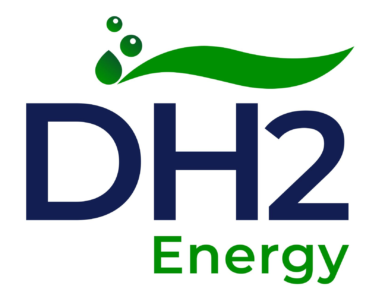From where should we import hydrogen? – Hamburg University.
Green hydrogen production requires water and renewable energy. The southern hemisphere presents particularly good geophysical conditions. Prof. Dr. Franziska Müller is investigating the risks that need to be considered in countries such as South Africa, Morocco, or Chile as part of the German Research Foundation funded research project H2POLITICS.
Much hope is being pinned on hydrogen in the transition to greener energy. Can it live up to expectations?
Prof. Dr. Franziska Müller, said:
🔥 What about we co-host a webinar? Let's educate, captivate, and convert the hydrogen economy!
Hydrogen Central is the global go-to online magazine for the hydrogen economy, we can help you host impactful webinars that become a global reference on your topic and are an evergreen source of leads. Click here to request more details
It depends on what kind of hydrogen we are talking about.
Green hydrogen is produced using renewable energy. This kind of hydrogen production can certainly assist sectors such as heavy industry, such as steelworks, to move towards carbon neutral production.
In your research project, you are researching the risks associated with the federal government’s strategy to import hydrogen from countries from the southern hemisphere. What sort of risks might they be?
An important aspect is water justice. Hydrogen production requires huge amounts of water, that need to be processed. In many countries, the high water consumption may lead to water shortages and increased water prices. Conflicts over land ownership must also be considered.
The processing plants require huge amounts of land. One project in Namibia takes up a fifth of the Tsau Khaeb National Park. That is more than five times the size of the state of Hamburg.
Many African countries, such as Ghana, Nigeria, and South Africa, have political strategies for transitioning to renewable energy. An international hydrogen policy must fit well with the existing local energy policies. If that is not the case, then it will not help the country transition.
Technical considerations also play an important role. We want to know which ecological effects these large-scale projects have and conduct tests along the energy production supply chain through to plant construction to logistics. We are working with the Fraunhofer Institute for Solar Energy Systems on this.
In addition to South Africa, the focus is on Chile and Morocco as possible production locations. Why?
We have chosen these countries because the German government already has them in view, and hydrogen partnerships already exist in some cases. In total, we are looking at the conditions in 27 countries.
For example, the German government has put Chile on its list of potential locations. However, the Chile and Germany are very far apart which may make it unviable as an option. The government has also looked at Niger.
This is a land-locked country with significant water shortages, and very little in the way of energy infrastructure. It is not fair to produce hydrogen there, while the population is suffering from water and energy shortages.
Distance also plays an important role. The MENA region, that includes the Middle East and North Africa, seems to be more appropriate as a location for production. There are extensive energy agreements with Morocco. However, the as yet unresolved conflict in the western Sahara is a significant consideration.
The war in Ukraine has revealed how dependent we are on imported energy. Is joint production with countries from the southern hemisphere and Germany possible?
A network of energy agreements is working towards independence from particular countries, and supports long-term stable energy relationships. New gas and oil supply contracts however extend our dependence on fossil fuels by decades.
As German production cannot increase rapidly enough however, hydrogen will have to be produced abroad for the next few decades, consistent with a green hydrogen strategy. Our economy is very energy intensive, and the potential for energy efficiencies have not yet been exhausted. We are not yet in a position to produce a lot of hydrogen.
Our project also considers out historical responsibilities: is outsourcing the majority of our own energy production, under the assumption that countries in the southern hemisphere will be available as an energy supplier a valid position?
The idea that African countries can be used as a production site for energy for Europe and the United States has a colonial overtones. Proceeding down that path must be fair for the countries doing the production, both socially and ecologically, to avoid falling into old behavioral patterns.
Surely you cannot travel to 27 countries for the project, how are you collecting your findings?
The information we use includes data from the World Water Atlas, and the World Bank. We collate this data to formulate positions on these countries, and create risk profiles.
In Morocco, Chile, and South Africa, we are conducting case studies, working with local actors involved in the hydrogen projects, including engineers, politicians, NGOs, unions, and local communities.
Through our previous projects, we have built up a large network. We conduct interviews, to gather data and assessments on the situation on the ground.
Who do your recommendations go to in the end?
We want to keep a certain distance from the political process. As a researcher, I think it is important to have a significant degree of academic freedom in my research. We do however get involved in political discussions, cooperating with NGOs and take part in practice transfers.
We are also talking to other researchers working on similar projects. This range of perspectives contributes to creating responsible production opportunities for new and sustainable energy.
READ the latest news shaping the hydrogen market at Hydrogen Central
From where should we import hydrogen?, May 16, 2022








